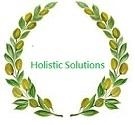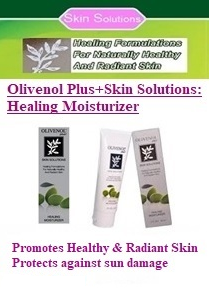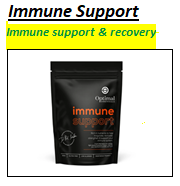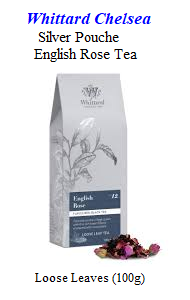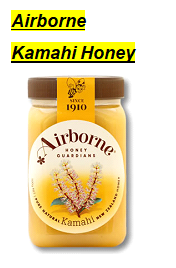What’s the difference between organic and natural? Isn’t “natural food” just as safe and healthy as “organic food”? Unfortunately, natural does not mean organic and comes with no guarantees. “Natural foods” are often assumed to be foods that are minimally processed and do not contain any hormones, antibiotics or artificial flavors. In the United States, however, neither the FDA nor the USDA has rules or regulations for products labeled “natural”. As a result, food manufacturers often place a “natural” label on foods containing heavily processed ingredients.
What about organic? Organic is the most heavily regulated food system. Only organic guarantees no toxic synthetic pesticides, toxic synthetic herbicides, or chemical NPK fertilizers are used in production, and no antibiotics or growth hormones are given to animals. Organic producers and processors also are subject to rigorous announced – and unannounced – certification inspections by third-party inspectors to ensure that they are producing and processing organic products in a manner you and your family can trust.
Organic refers to the way agricultural products are grown and processed. It includes a system of production, processing, distribution and sales that assures consumers that the products maintain the organic integrity that begins on the farm.
This system, which is governed by strict government standards, requires that products bearing the organic label are made without the use of toxic and persistent pesticides and synthetic nitrogen fertilizers, antibiotics, synthetic hormones, genetic engineering or other excluded practices, sewage sludge, or irradiation.
Guided by these and other standards, organic is the most heavily regulated and closely monitored production system in the U.S., enabling you to choose organic products with confidence.
Learn about the USDA certified organic label and read on for more about the difference between organic, natural and conventional products.
What does the Organic label promise you?
Unlike natural and other eco-label claims, only organic offers government-backed assurance that products are grown and processed without the use of toxic chemicals, antibiotics and synthetic growth hormones. Read on to learn what makes organic the most heavily regulated food system, and why it’s worth it to trust the organic label above others.
But the important question is – “Why do some people prefer organic food and some people prefer natural food”? This is because some people have the belief that synthesizing a food item results in some level of loss of its nutrients and beneficial properties. Therefore they demand natural foods.Organic food fans, on the other hand, want their food to be free of chemical fertilizers, pesticides and preservatives, so they choose organic.Apparently, the demand for organic food is more than natural food because organic food seals are guaranteed and monitored by the government. An act similar to the Organic Food Products Act is necessary for natural food products as well, but it has not occurred at this time.
Certification Agencies
Organic food: Many countries have certification bodies, the most prominent being the United States Department of Agriculture (USDA).
Natural food:The International Association of Natural Products Producers (IANPP) is trying to get the definitions for natural food into solid place. It should be noted that this association is not a certification body.
Organic certification is a certification process for producers of organic food and other organic agricultural products. In general, any business directly involved in food production can be certified, including seed suppliers,farmers, food processors, retailers and restaurants.
Requirements vary from country to country (List of countries with organic agriculture regulation), and generally involve a set of production standards for growing, storage, processing, packaging and shipping that include:
· avoidance of synthetic chemical inputs (e.g. fertilizer,pesticides, antibiotics, food additives), irradiation, and the use of sewage sludge;[1]
· avoidance of genetically modified seed;
· use of farmland that has been free from prohibited chemical inputs for a number of years (often, three or more);
· for livestock, adhering to specific requirements for feed, housing, and breeding;
· keeping detailed written production and sales records (audit trail);
· maintaining strict physical separation of organic products from non-certified products;
· undergoing periodic on-site inspections.
In some countries, certification is overseen by the government, and commercial use of the term organic is legally restricted. Certified organic producers are also subject to the same agricultural, food safety and other government regulations that apply to non-certified producers.
Certified organic foods are not necessarily pesticide-free, certain pesticides are allowed.
Here are the Certification logos you may find on the labels of organic foods:

Here is a video on What is Organic Food & Farming :
What is Organic Food & Farming
Holistic Solutions Limited can offer you Natural Foods like top quality honey and aromatic tea for your enjoyment :
Honey from New Zealand and Rose Tea from England
Over 100 years, Airborne Honey Limited (one of the largest Producer-packer and Exporter in New Zealand) has produced and packed 100% pure top quality honey, in liquid and creamed form, produced in pollution-free New Zealand. Please refer to Website of Airborne Honey Limited for the background of the company and the merits of their honey.We have included in the Side Bar the Airborne Clover Honey (200g) which is ideal to put in your drinks or water to replace your sugar consumption. Please see the Nutritional Value and some Frequently Asked Questions to know more about the honey.
We have also included in the Side Bar in the Welcome Page the English Rose Tea from Whittard Chelsea, a prominent UK company in the Tea market founded in 1886. Today, the company remains true to their founder Mr. Walter Whittard’s tea philosophy “to buy the best and blend the brightest”. English Rose Tea is a blended black tea that gives a sweet and flowery aroma and is perfect as an afternoon tea to enjoy with your loved ones. The rose aroma is great for relaxation and calming emotional stress. Why not take a cup a day during tea time for its special fragrance and benefits?
Dr. Phil Optimalessentials Superfood
We have also selected a range of food-based supplements under the brand name of Dr. Phil Optimalessentials Superfood for those suffering from an unbalanced diet or those who are unable to intake, digest and absorb the nutrients from their daily diet due to their illness. Please refer to the webpage Optimalessentials for details.
Agreement to Disclaimers :
By the use of this website, you confirm and agree to the statements and disclaimers set forth under the Disclaimers Page.The Website does not assume any responsibility for errors, inaccuracies or omissions in any of the articles or information posted on the website.
